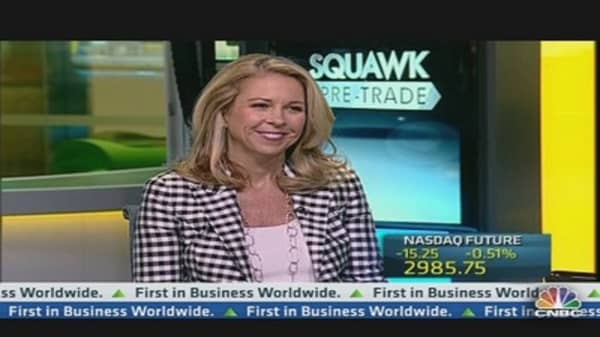A perfect storm of yen strength, a spike in Japanese government bond yields and new evidence of weakness in China's economy were behind a major sell-off Thursday in Japan's equity markets, said experts.
The benchmark Nikkei 225 closed down 7.3 percent in a session that saw it rise 2 percent in early trade only to reverse direction and fall sharply. The broader Topix finished 6.8 percent lower.
"Almost everything went wrong during the day - the bond market had a bit of a crash, China PMI data, and the yen is stronger. The market is really overheated, all it's looking for is a trigger," Nicholas Smith, Japan strategist at CLSA told CNBC.
Following the sell-off in U.S. Treasurys overnight, Japan government bond (JGB) prices dived, forcing the yield on the 10-year JGB to 1 percent earlier in the day - the highest level in a year - spooking investors.
(Read More: Japan Bond Yields Spike Again- 10-Year Now at 1% )
Yields of JGBs, which have been extremely volatile in recent weeks, have risen substantially from a record low of 0.315 percent hit on April 5, a day after the Bank of Japan announced bold easing measures.
Downside in the market was also driven by the fall in dollar/yen - which slid below the 103 level to as low as 101.8 in the Asian trading session as foreign investors locked in profits on their long positions in the currency pair.
The yen holds an inverse correlation with the Nikkei as strength in the currency is seen as negative for the market that has a heavy concentration of exporters.
"It seems like the move lower in dollar-yen has encouraged some profit taking on the Nikkei. Any signs of strain will lead to fear that the correction is beginning, leading investors to lock in gains," said Stan Shamu, market strategist at trading firm IG Markets.
Disappointing economic data out of the world's second largest economy, China, was also a driver behind the sell-off, said strategists.
(Read More: Outlook for China's Economy Just Keeps Getting Worse )
The flash HSBC Purchasing Manager's Index (PMI) for May that was released on Thursday slipped to 49.6, falling under the key 50 level, which divides expansion from contraction, for the first since October.
The unexpected contraction in factory activity in May has heightened the risk of a further slowdown in the second quarter, said economists.





